Intro
Discover Liver Function Test names and types, including ALT, AST, and GGT tests, to diagnose liver health issues, liver disease, and liver damage, ensuring accurate liver function assessment and treatment.
The liver is a vital organ that plays a crucial role in maintaining our overall health. It performs a wide range of functions, including detoxification, protein synthesis, and production of biochemicals necessary for digestion. However, liver damage or disease can disrupt these functions, leading to various health problems. To diagnose and monitor liver health, doctors often recommend liver function tests (LFTs). In this article, we will delve into the world of liver function tests, exploring their importance, types, and interpretation.
Liver function tests are a group of blood tests that measure the levels of various enzymes, proteins, and other substances in the blood to assess liver health. These tests can help diagnose liver damage or disease, monitor the progression of liver disease, and evaluate the effectiveness of treatment. LFTs are commonly used to detect liver conditions such as hepatitis, cirrhosis, and liver cancer. They can also help identify liver damage caused by medications, toxins, or other factors.
The importance of liver function tests cannot be overstated. Early detection and diagnosis of liver disease can significantly improve treatment outcomes and prevent long-term damage. LFTs can also help identify individuals who are at risk of developing liver disease, allowing for prompt intervention and prevention. Furthermore, LFTs can monitor the effectiveness of treatment and detect any potential complications or side effects. With the increasing prevalence of liver disease, LFTs have become an essential tool in modern medicine.
Liver Function Test Types
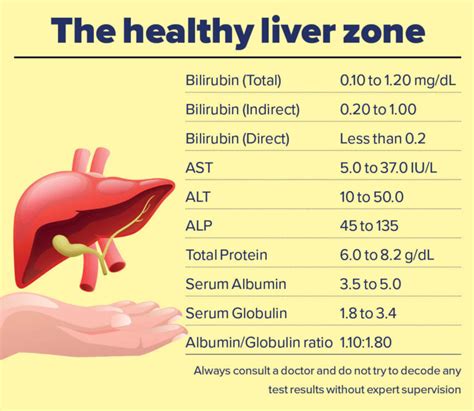
There are several types of liver function tests, each measuring different substances in the blood. The most common LFTs include:
- Alanine transaminase (ALT): measures the level of ALT enzyme in the blood, which is elevated in cases of liver damage or disease.
- Aspartate transaminase (AST): measures the level of AST enzyme in the blood, which is also elevated in cases of liver damage or disease.
- Alkaline phosphatase (ALP): measures the level of ALP enzyme in the blood, which is elevated in cases of liver damage, bone disease, or other conditions.
- Gamma-glutamyl transferase (GGT): measures the level of GGT enzyme in the blood, which is elevated in cases of liver damage or disease.
- Total bilirubin: measures the level of bilirubin in the blood, which is elevated in cases of liver damage or disease.
- Direct bilirubin: measures the level of direct bilirubin in the blood, which is elevated in cases of liver damage or disease.
- Albumin: measures the level of albumin protein in the blood, which is decreased in cases of liver damage or disease.
- Prothrombin time (PT): measures the time it takes for blood to clot, which is prolonged in cases of liver damage or disease.
Liver Function Test Interpretation
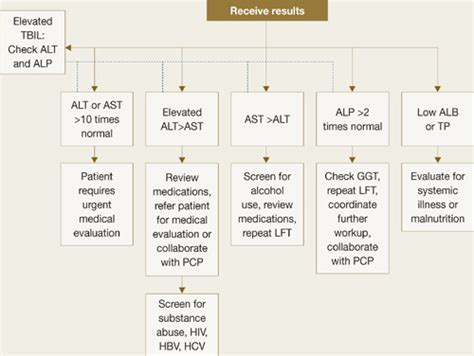
Interpreting liver function test results requires a thorough understanding of the various substances measured and their normal ranges. Abnormal LFT results can indicate liver damage or disease, but they can also be influenced by other factors such as age, sex, and medication use. The following are some general guidelines for interpreting LFT results:
- Elevated ALT and AST levels: indicate liver damage or disease, such as hepatitis or cirrhosis.
- Elevated ALP and GGT levels: indicate liver damage or disease, such as cholestasis or liver cancer.
- Elevated total and direct bilirubin levels: indicate liver damage or disease, such as hepatitis or cirrhosis.
- Decreased albumin levels: indicate liver damage or disease, such as cirrhosis or liver failure.
- Prolonged PT: indicates liver damage or disease, such as cirrhosis or liver failure.
Liver Function Test Preparation
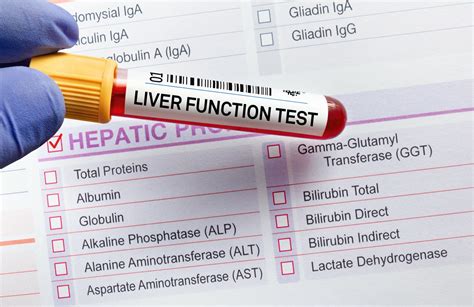
Preparing for liver function tests is relatively straightforward. The following are some general guidelines:
- Fasting: some LFTs require fasting for 8-12 hours before the test.
- Medication: inform your doctor about any medications you are taking, as some may affect LFT results.
- Avoid alcohol: avoid consuming alcohol for 24-48 hours before the test, as it can affect LFT results.
- Avoid certain foods: avoid consuming foods that are high in fat or protein, as they can affect LFT results.
Liver Function Test Risks and Complications
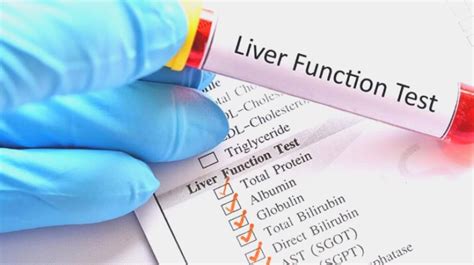
Liver function tests are generally safe and well-tolerated. However, as with any medical test, there are some potential risks and complications to be aware of:
- Bleeding: some LFTs involve blood sampling, which can cause bleeding or bruising.
- Infection: as with any medical test, there is a risk of infection with LFTs.
- Allergic reactions: some individuals may experience allergic reactions to the substances used in LFTs.
- False results: LFT results can be affected by various factors, such as medication use or underlying medical conditions, which can lead to false results.
Liver Function Test Results
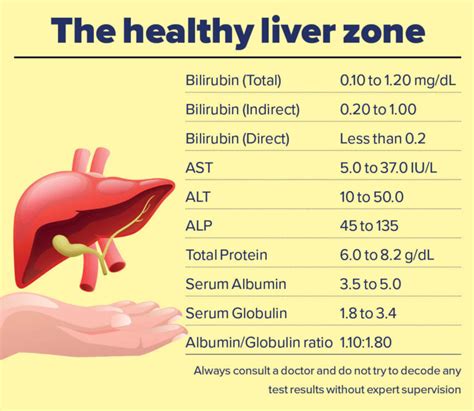
Receiving liver function test results can be a nerve-wracking experience. However, it is essential to understand that abnormal results do not necessarily mean that you have liver disease. The following are some general guidelines for understanding LFT results:
- Normal results: indicate that your liver is functioning normally.
- Abnormal results: indicate that your liver may be damaged or diseased, but further testing is needed to confirm the diagnosis.
- Borderline results: indicate that your liver function is near the upper limit of normal, but further testing is needed to confirm the diagnosis.
Liver Function Test Results Interpretation
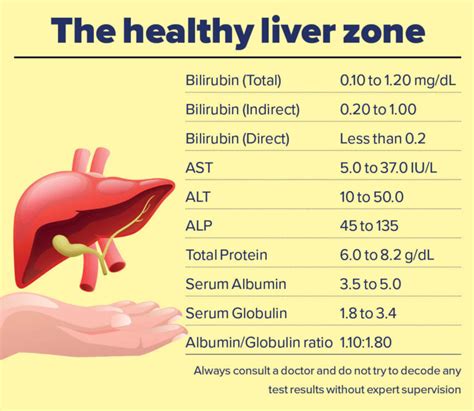
Interpreting liver function test results requires a thorough understanding of the various substances measured and their normal ranges. The following are some general guidelines for interpreting LFT results:
- Elevated ALT and AST levels: indicate liver damage or disease, such as hepatitis or cirrhosis.
- Elevated ALP and GGT levels: indicate liver damage or disease, such as cholestasis or liver cancer.
- Elevated total and direct bilirubin levels: indicate liver damage or disease, such as hepatitis or cirrhosis.
- Decreased albumin levels: indicate liver damage or disease, such as cirrhosis or liver failure.
- Prolonged PT: indicates liver damage or disease, such as cirrhosis or liver failure.
Liver Function Test Follow-Up
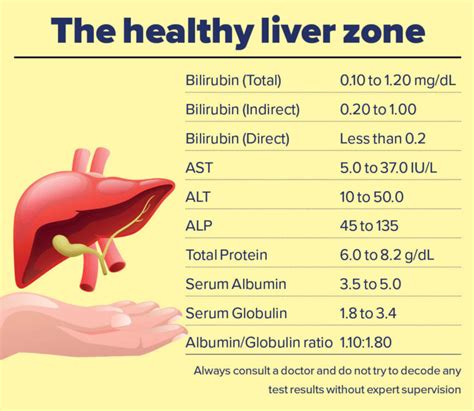
Following up on liver function test results is essential to ensure that any underlying liver conditions are properly managed. The following are some general guidelines for follow-up:
- Schedule a follow-up appointment: with your doctor to discuss the results and determine the next course of action.
- Further testing: may be needed to confirm the diagnosis or monitor the progression of liver disease.
- Treatment: may be necessary to manage underlying liver conditions, such as medication or lifestyle changes.
- Lifestyle modifications: may be recommended to reduce the risk of liver disease, such as avoiding alcohol or losing weight.
What is the purpose of liver function tests?
+Liver function tests are used to diagnose and monitor liver health, detect liver damage or disease, and evaluate the effectiveness of treatment.
What are the most common liver function tests?
+The most common liver function tests include ALT, AST, ALP, GGT, total bilirubin, direct bilirubin, albumin, and PT.
How do I prepare for liver function tests?
+To prepare for liver function tests, you should fast for 8-12 hours, avoid alcohol and certain foods, and inform your doctor about any medications you are taking.
What do abnormal liver function test results mean?
+Abnormal liver function test results can indicate liver damage or disease, but further testing is needed to confirm the diagnosis.
How often should I get liver function tests?
+The frequency of liver function tests depends on your individual needs and medical history, but it is generally recommended to get tested annually if you are at risk of liver disease.
In summary, liver function tests are a crucial tool in diagnosing and monitoring liver health. By understanding the different types of LFTs, their preparation, and interpretation, you can take an active role in maintaining your liver health. If you have any concerns about your liver health or would like to learn more about LFTs, we encourage you to share this article with your friends and family, or leave a comment below. Remember, early detection and diagnosis are key to preventing long-term liver damage and improving treatment outcomes. Take the first step towards a healthier liver today!
